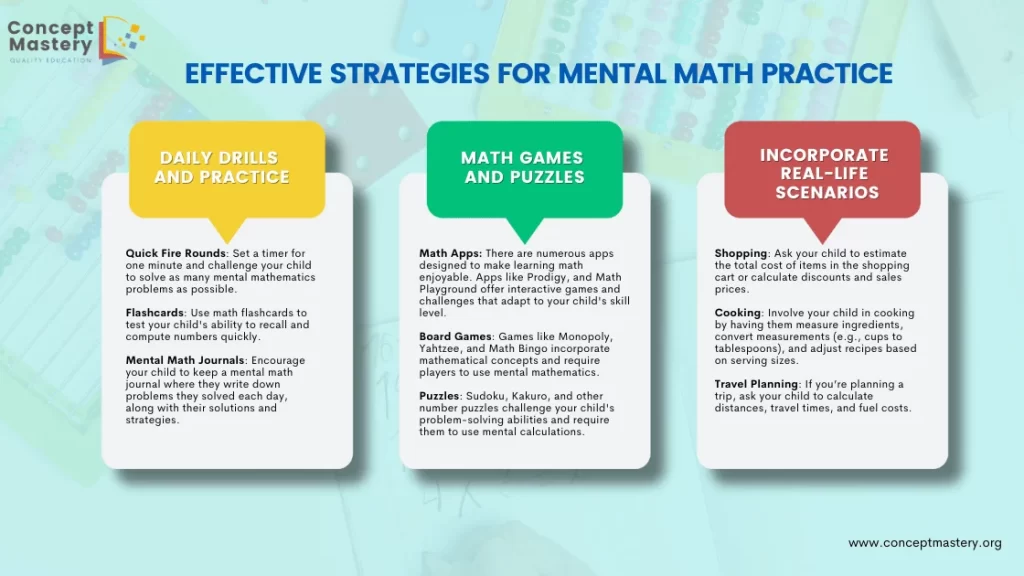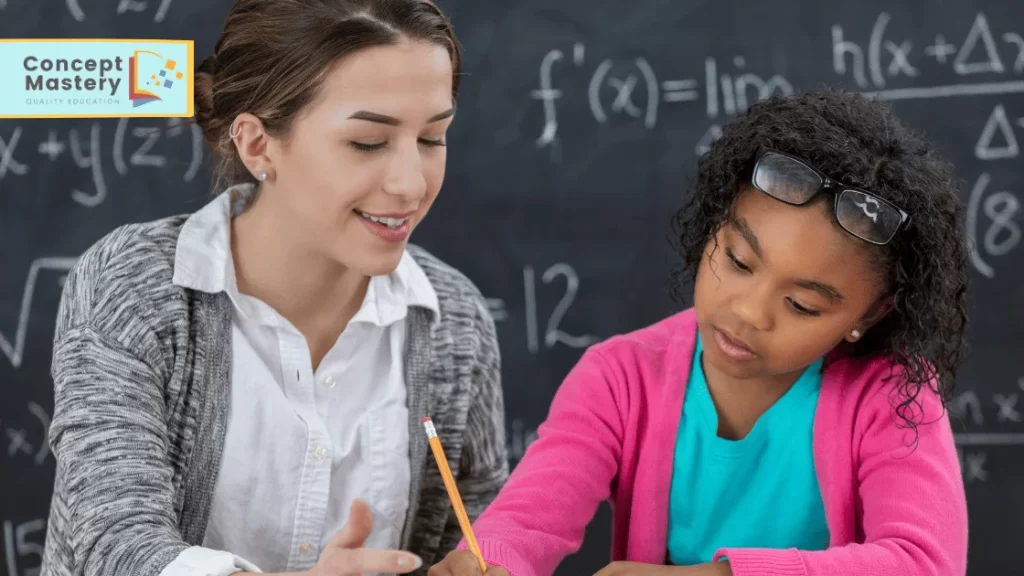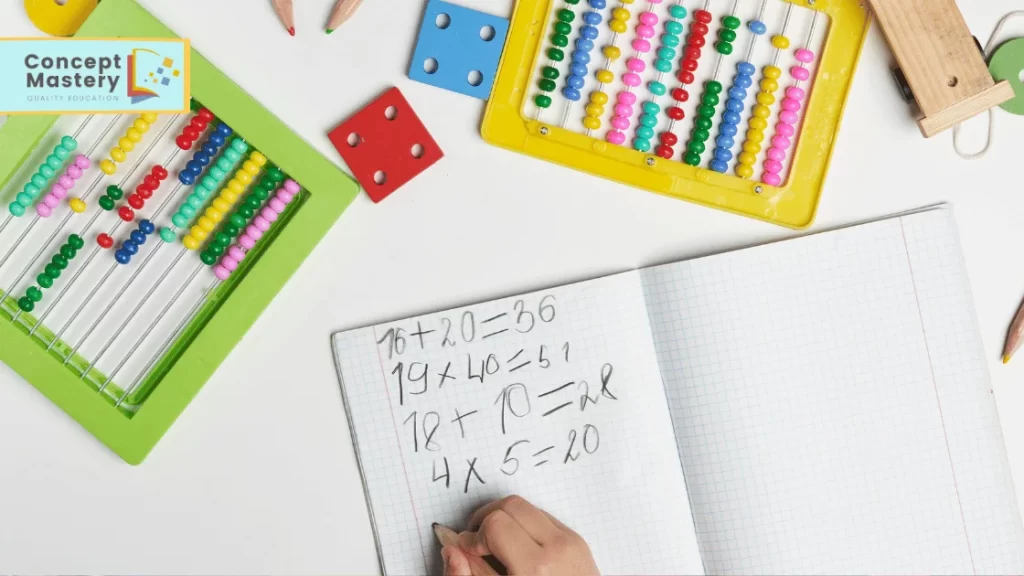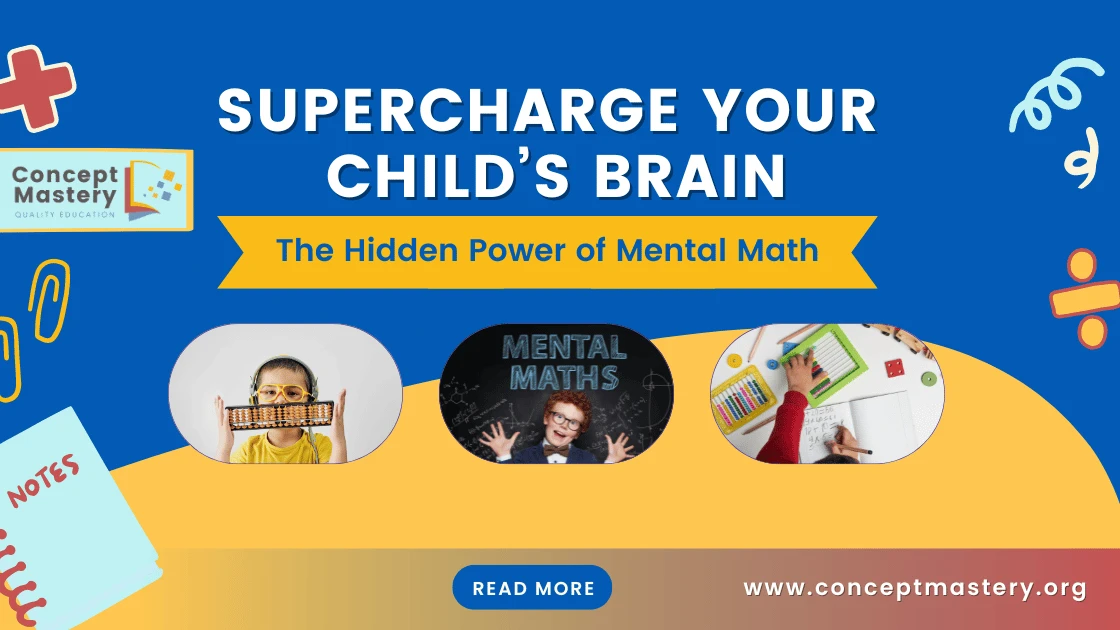Mathematics often feels like a daunting subject to many children, but it doesn’t have to be. Mental maths can transform the way your child views numbers, making math not only approachable but also enjoyable. By developing strong mental math skills, children can boost their brain power, enhance their problem-solving abilities, and improve their overall academic performance.
The Power of Mental Maths
Mental maths, the practice of performing calculations in one’s head without the use of paper, calculators, or other aids, is a powerful tool in a child’s educational arsenal. This skill goes beyond the classroom, helping in everyday decision-making and logical thinking.
Benefits of Mental Maths
Developing strong mental math skills can be a game-changer for your child’s cognitive and academic growth. By engaging in mental math practice, children can unlock numerous benefits that extend far beyond the classroom.
Enhanced Cognitive Skills: Mental math practice strengthens the brain’s neural pathways, improving memory, concentration, and cognitive functions.
Faster Problem Solving: With regular mental math practice, children can solve problems more quickly and efficiently, boosting their confidence and academic performance.
Increased Numerical Fluency: Mental math helps children understand numbers better, promoting numerical fluency and making advanced mathematical concepts easier to grasp.
Improved Logical Thinking: Mental maths encourages logical reasoning and critical thinking skills, which are essential for academic success and everyday life.
By embracing mental maths, children not only enhance their mathematical abilities but also gain invaluable life skills. These benefits pave the way for a brighter academic future and sharper problem-solving skills in everyday life.
Strategies for Effective Mental Math Practice

To maximize the benefits of mental mathematics, it’s important to incorporate engaging and effective strategies that cater to your child’s learning style. By integrating these strategies into daily routines and educational activities, you can make mental math a natural and enjoyable part of your child’s life.
Let us look at some of these strategies.
Daily Drills and Practice
Consistent practice is key to mastering mental math. Incorporate short, daily drills that challenge your child to solve problems quickly and accurately. This regular engagement can be as simple as asking them to calculate the total cost of items during shopping or solve arithmetic problems in their head during car rides. Here are some specific drills to consider:
Quick Fire Rounds: Set a timer for one minute and challenge your child to solve as many mental mathematics problems as possible. This helps improve their speed and accuracy under pressure.
Flashcards: Use math flashcards to test your child’s ability to recall and compute numbers quickly. Flashcards can cover basic operations like addition, subtraction, multiplication, and division.
Mental Math Journals: Encourage your child to keep a mental math journal where they write down problems they solved each day, along with their solutions and strategies. This helps track progress and identify areas needing improvement.
Math Games and Puzzles
Games and puzzles are excellent tools for making mental math fun and engaging. They offer a playful approach to learning that can keep your child interested while honing their skills. Here are some ideas:
Math Apps: There are numerous apps designed to make learning math enjoyable. Apps like Prodigy, Khan Academy Kids, and Math Playground offer interactive games and challenges that adapt to your child’s skill level.
Board Games: Games like Monopoly, Yahtzee, and Math Bingo incorporate mathematical concepts and require players to use mental mathematics. These games make learning social and competitive, enhancing the experience.
Puzzles: Sudoku, Kakuro, and other number puzzles challenge your child’s problem-solving abilities and require them to use mental calculations. These puzzles can be found in books, online, or through dedicated apps.
Incorporate Real-Life Scenarios
Applying mental math to real-life situations helps children see the practical value of their skills. Encourage them to estimate costs, measure ingredients while cooking, or calculate time differences, making math an integral part of their daily routine. Here are some practical applications:
Shopping: Ask your child to estimate the total cost of items in the shopping cart or calculate discounts and sales prices. This reinforces addition, subtraction, and percentage calculations.
Cooking: Involve your child in cooking by having them measure ingredients, convert measurements (e.g., cups to tablespoons), and adjust recipes based on serving sizes. This helps with fractions, multiplication, and division.
Travel Planning: If you’re planning a trip, ask your child to calculate distances, travel times, and fuel costs. This can introduce them to concepts like rates, averages, and unit conversions.
These strategies ensure that your child is engaged in interesting activities while enhancing mental power at the same time. Be the supporting pillar at all times.
The Role of Math Tutors and Summer Programs
While mental math practice is crucial, professional guidance can significantly enhance a child’s mental math skills. Enrolling in programs with the best math tutors can provide personalized attention and tailored learning experiences that address your child’s specific needs.
Finding the Best Math Tutors

Qualified tutors can identify your child’s strengths and weaknesses, providing customized strategies to improve their mental maths abilities. When searching for the best math tutors, consider the following:
Educational Background: Look for tutors with a strong educational background in mathematics or related fields. Degrees and certifications in education or mathematics are good indicators of their expertise.
Experience: Experienced tutors often have a proven track record of helping students improve their skills. Look for math tutors who have worked with children of similar age and skill levels as your child.
Teaching Style: Every child learns differently, so it’s important to find a tutor whose teaching style matches your child’s learning preferences. Some children may thrive with a structured approach, while others may benefit from a more interactive, hands-on style.
Reviews and References: Seek out reviews and testimonials from other parents and students. Positive feedback can provide insight into the tutor’s effectiveness and approachability.
Math Summer Camps or Summer Programs
Math summer camps offer an immersive environment where children can dive deep into mathematical concepts. These camps often combine traditional learning with fun activities, making math enjoyable and less intimidating. Participating in a math summer camp can boost your child’s confidence and ignite a passion for mathematics. Here’s what to look for in a math summer camp:
Curriculum: Ensure the camp offers a comprehensive curriculum that covers a range of mathematical topics and skills. Look for camps that include mental math, problem-solving, and hands-on activities.
Qualified Instructors: The quality of instruction is crucial. Camps should employ experienced teachers or tutors with strong backgrounds in math education.
Engaging Activities: The best camps balance structured lessons with interactive and engaging activities. Look for camps that offer games, puzzles, and real-life applications of math.
Social Interaction: Camps provide a unique opportunity for children to learn alongside peers who share similar interests. This social aspect can enhance learning and make the experience more enjoyable.
Research Supporting Mental Math
Research has consistently shown that students who engage in regular mental math practice perform better academically. According to a study by the National Mathematics Advisory Panel, children who are proficient in mental calculations are more likely to succeed in advanced mathematics. The study highlights several key findings:
Improved Standardized Test Scores: Students who regularly practice mental math tend to score higher on standardized math tests. This is because mental math improves numerical fluency and problem-solving speed.
Better Conceptual Understanding: Mental math helps students develop a deeper understanding of mathematical concepts. This foundational knowledge is essential for tackling more complex topics in higher grades.
Increased Confidence: Mastering mental math boosts students’ confidence in their mathematical abilities. This confidence can translate into a more positive attitude toward math and a greater willingness to tackle challenging problems.
Additionally, a report from the Organisation for Economic Co-operation and Development (OECD) indicates that students who practice mental maths regularly score higher in international assessments like PISA. The report suggests that mental math practice enhances critical thinking and analytical skills, which are vital for academic success and beyond.
The Mental Math Pathway for Your Child

Mental maths is more than just a skill; it’s a gateway to developing a sharper, more agile mind. By incorporating mental math practice into your child’s daily routine, you can help them build a strong foundation for academic success and beyond. Whether through daily drills, engaging games, or professional tutoring, the benefits of mental maths are undeniable.
Investing in mental math practice is an investment in your child’s future. The ability to perform mental calculations quickly and accurately will serve them well in school, their career, and everyday life. Encouraging this practice from an early age can set the stage for lifelong success.
Concept Mastery Summer Program
If you’re looking for a comprehensive program to boost your child’s mental math skills, consider Concept Mastery’s holistic math classes. From 8th July to 29th August, our math summer camp in Canada offers a blend of engaging lessons, interactive activities, and expert guidance. Our dedicated tutors are committed to helping your child excel in mathematics, providing the tools they need to succeed. Enroll now and give your child the gift of mental math mastery!

